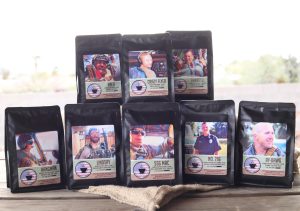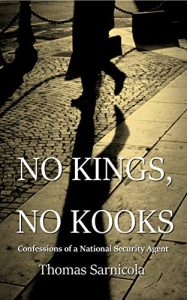American Warrior Radio

Freedom Coffee Co & Thomas Sarnicola
FREEDOM COFFEE COMPANY
Freedom Coffee Company was born out of tragedy. Hope Harrison’s husband Dustin was killed by terrorists while operating an Intelligence, Surveillance and Reconnaissance drone for the Department of Defense in Kenya.
Hope and Dustin had just started a family and had agreed that this would be Dustin’s the last overseas assignment so he could spend more time with his family. He was killed nine days before being scheduled to come home.
Like many Gold Star widows, the news devastated Hopes’ world. She knew something was amiss when Dustin didn’t reply to her daily text. That morning she also read a news story stating that his base had been attacked and there were casualties. The agony was confounded by the fact that they owned two homes in different cities and officials had trouble locating Hope to make the notification.
They say that people are never truly forgotten as long as we repeat their names. Hope and Dustin shared an abiding love for coffee, so she decided to create Freedom Coffee Company. Every bag of Freedom coffee features the names and photos of fallen heroes on each bag of coffee. Hope describes it as “coffee with a hero every morning.” The fallen featured on each bag of coffee will be rotated each year.
NO KINGS, NO KOOKS
Thomas Sarnicola conducted over 1,000 criminal background checks as a Special Agent for the Department of Defense. There are roughly 4 million federal employees, including the military. About 1 million of those require security clearances. Some of the unique situations he encountered while doing these investigations are compiled in his book “No Kings, No Kooks; Confessions of National Security Agent”.
Thomas describes the job as similar to a “gumshoe” detective, requiring a great deal of field work in addition to researching various publicly available databases. One or two blemishes may not be sufficient to disqualify a person. Thomas was looking for “consistencies of character.” He was a fact collector but did not make final decisions. In order to maintain objectivity, he was never informed of the eventual outcome of each case.
In his book, Thomas shares some of the most unique experiences he encountered. He says the biggest challenge was being empathetic while maintaining a professional distance from the investigation subject. He emphasizes it gives him hope that the majority of the cases had no issues.






 Visit Podcast Website
Visit Podcast Website RSS Podcast Feed
RSS Podcast Feed Subscribe
Subscribe
 Add to MyCast
Add to MyCast